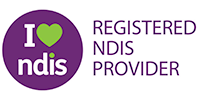The uniqueness of your NDIS plan management lies in its personalised nature. It is custom-tailored specifically for you, taking into account your individual situation and the support you currently receive. As an NDIS participant, you have the opportunity to access a wide range of funded support, spanning from transportation to therapies, employment assistance, and even home modifications.
Before delving into the various types of supports recognised by the NDIS, let’s first explore how they determine which supports to fund in your plan.
In essence, the NDIS prioritises the support and services that will assist you in achieving your goals, fostering greater independence, enabling community engagement, participating in work and other activities, and ultimately living your best life.
During your NDIS planning meeting, your assigned NDIS professional will engage in a discussion with you, seeking insights into your goals, the existing supports you currently receive, and the additional supports you require.
Understanding Reasonable and Necessary Supports in the NDIS
The NDIS considers reasonable and necessary support to encompass various aspects:
- Supports directly related to the participant’s disability.
- Supports that go beyond day-to-day expenses but are still connected to the participant’s disability.
- Supports that offer value for money, ensuring efficient utilisation of funding.
- Supports deemed likely to be effective and not cause harm to the participant.
- Support is not already provided by family, friends, the community, or other government services.
These reasonable and necessary supports are grouped into three primary support purposes and budgets, namely core supports, capital supports, and capacity-building supports. Within each category, there are distinct subtypes, totalling 10 different types of support available under the NDIS.
Core Supports
Core support is essential for meeting your daily needs and facilitating day-to-day activities. These supports fall into different categories, such as:
Assistance with Daily Life:
This category covers the assistance you require to perform regular self-care activities and household tasks, ensuring you can lead an independent life.
Transport:
This type of support is designed to assist participants who may face challenges with mobility due to their disability. It helps them access transportation services, ensuring they can move around freely and participate in various activities.
Assistance with Social and Community Participation:
This category encompasses supports that enable you to actively engage in social and recreational activities, foster connections within your community, and promote overall well-being.
Capital Supports
Capital supports encompass higher-cost items and services that aim to improve your day-to-day life and enhance your independence.
Assistive Technology:
This category includes various supports such as wheelchairs, communication aids, vehicle modifications, and other assistive equipment that assist you in overcoming functional limitations and improving your overall quality of life.
Home Modifications:
Home modifications are designed to create a more accessible living environment for you. This category covers the design and construction of modifications such as ramps or rails that enhance safety and support your independence within your home.
Capacity Building Supports
Capacity building refers to a range of training, skill-building, learning, and employment supports designed to bring you closer to achieving the goals outlined in your NDIS plan management.
Support Coordination:
This entails expert assistance that strengthens your ability to coordinate your support and navigate the NDIS effectively. A fixed amount is allocated for a support coordinator when this support is required. It is essential to note that support coordination should not be confused with plan management, as they serve different purposes.
Improved Living Arrangements:
These supports aim to help you find and maintain suitable housing, including assistance with rental tenancy applications.
Increased Social and Community Participation:
This type of support provides classes and coaching to develop life skills necessary for greater social engagement and community participation.
Finding and Keeping a Job:
Supports in this category include assessments and guidance to assist you in securing and maintaining employment.
Improved Relationships:
This category involves therapies and other support strategies that address behaviours of concern and promote healthier relationships.
Improved Health and Wellbeing:
These supports are centred around your health and well-being, such as exercise, physiotherapy, and nutrition services.
Improved Learning:
These supports help you prepare for further education, including assistance with student budgeting, study workload management, and orientation support.
Improved Life Choices:
This category includes supports to enhance your ability to manage your life, such as financial assistance to track your budget. NDIS plan management, like that provided by Blitzit, falls under this category.
Improved Daily Living Skills:
This encompasses allied health supports, such as occupational therapy and speech therapy, to enhance your daily living skills and foster independence.
Conclusion
In conclusion, the NDIS offers a personalised plan tailored to individual needs, encompassing a diverse range of supports to enhance independence and community engagement. With reasonable and necessary support under the Core, Capital, and Capacity Building categories, participants receive essential assistance, including home modifications, support coordination, and improved daily living skills. Through this comprehensive approach, the NDIS aims to empower individuals to achieve their goals and lead fulfilling lives, fostering greater inclusion and overall well-being.



